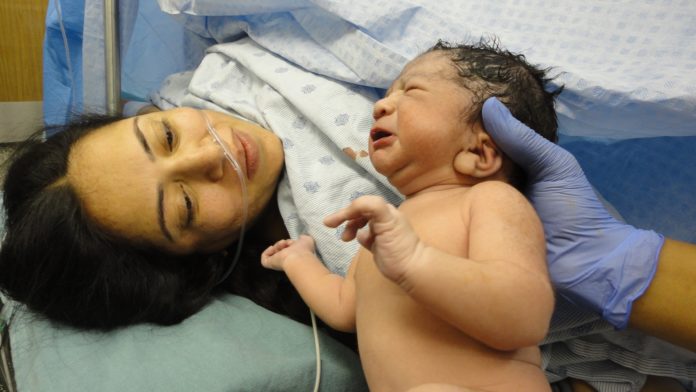Despite substantial decline in recent years, maternal and child deaths continue to be at unacceptable levels in SE Asia
An expert group has called for strengthening and expanding sexual and reproductive health services in Member countries of WHO South-East Asia Region, to reduce deaths of mothers and babies. Despite substantial decline in recent years, maternal and child deaths continue to be at unacceptable levels.
“Though millions of lives are now being saved due to efforts in recent years, it is unacceptable that mothers or babies continue to die from preventable causes. We must focus on neglected sexual and reproductive health issues such as post pregnancy family planning, comprehensive abortion care, and prevention and management of cervical cancer,” said Dr Poonam Khetrapal Singh, Regional Director, WHO South-East Asia, at the South-East Asia Region’s Technical Advisory Group (TAG) meeting for women’s and children’s health, in New Delhi.
The expert group acknowledged that many countries in the Region have made significant progress since 1990 contributing to 69% decline in maternal deaths by 2015, 70% reduction in under-five deaths and 60% reduction in newborn mortality by 2018. However, stillbirths need urgent attention as their reduction has been concerningly slow at 31.7% between 2000 and 2015. More needs to be done to achieve the 2030 Sustainable Development Goals for health.
Quality abortion services including post-abortion care and increasing access to contraception is another area to focus on. Every year nearly 6 million women are treated for complications related to unsafe abortions in the Region
Preventable maternal mortality and stillbirths – are interlinked and interdependent, Dr Khetrapal Singh said, adding that the right mix of quality services and high coverage of essential interventions, particularly around the time of birth can save lives of many mothers and their newborns, and reduce stillbirths. Progressive and significant increase in institutional deliveries in the Region offer a good opportunity to build on further efforts.
The TAG, comprising of experts from the Region and across the globe, recommended focused measures to address both direct and indirect causes of maternal and newborn deaths, and prevent stillbirths.
Early marriage and adolescent pregnancies increase the health risk to both mothers and babies, especially as the young mothers themselves are under-nourished and anemic. Countries must invest in health services tailored to the needs of their adolescent population, including access to sexual and reproductive health related information, the TAG recommended.
Quality abortion services including post-abortion care and increasing access to contraception is another area to focus on. Every year nearly 6 million women are treated for complications related to unsafe abortions in the Region.
The TAG recommended ensuring quality antenatal care services, specially in the third trimester, for identifying complications and taking remedial measures to minimize impact on mothers, their unborn and newborns.
Increased budgets for health – particularly for maternal and child health programmes, trained health workforce, especially midwifery personnel, access to essential services and medicines, and continued focus on institutional deliveries, are key to reduction in maternal, child and neonatal deaths, the TAG, which met in New Delhi on 15 and 16 January, reiterated.
High quality sexual and reproductive health services are integral to any drive towards universal health coverage. Access to quality services is a right of everyone, everywhere, said the Regional Director, who has been promoting universal health coverage and reduction in preventable maternal, child and newborn deaths, as flagship priority programmes in WHO South-East Asia Region.


